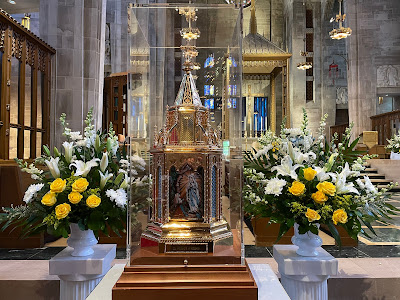Ascension of the Lord (C)

In 1908, The Times of London asked notable authors to respond to the following question: “What is wrong with the world?” In these heavy and somber days following the school massacre in Uvalde, yet still on the heels of the racially motivated shooting in Buffalo not two weeks ago, our entire country is asking the very same question: “What is wrong with the world?” Of those attempted answers put forward by the secular news media, I have admittedly read only a few, in part, because I suspect that I already know what they are going to say––or rather, what they are not going to say. And what I expect is that they will not answer the question in the way that G.K. Chesterton did over a century ago, which––to me, at least––seems to be the only answer to the question worth listening to. To the editor of The Times , Chesterton wrote this: “Dear Sir, Regarding your question ‘What is wrong with the world?,’ I am. Yours truly, G.K. Chesterton.” While in the wake of great tragedy people today...

